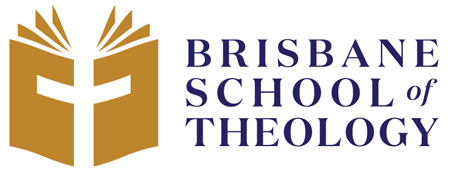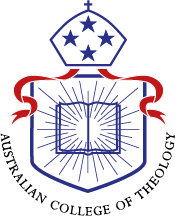Diploma of Theology
UNDERGRADUATE
- 8 Units
- 1 year FT | up to 8 years PT
- 96 Credit Points
- FEE HELP
- OVERSEAS
Course Description
If you’re new to theological education, and particularly if you don’t have an undergraduate qualification, then the Diploma of Theology is a great way to dip your toe in the water.
It will give you an overview of both the Old and New Testaments, showing you the big-picture story of the Bible and giving you the basic skills to better understand and explain it. You’ll also be able to choose one key book or area of the Bible to explore more deeply, like Paul’s letters, the Gospels, or the Psalms. The broad range of optional units means you can then choose to uncover a bit of church history, get to grips with the doctrine of grace, learn some practical ministry skills like pastoral care or preaching, or even study some Hebrew or Greek.
The DipTh is a good jumping-off point if you’re not yet sure what the future holds for you. It will give you a well-rounded biblical base so you can start testing out which areas of theology interest you most and where God might be wanting to put your skills to work.
- Introduces students to the sources and content of the Christian story and message, and provides training which emphasises application and articulation of this story and message in the contemporary world.
- Concentrates on the disciplines by which knowledge of God is developed and articulated:
- Bible & Languages (LA, OT, NT, BB) and
- Christian Thought & History (TH, CH, PE)
- Provides a grounding for ministry by establishing a foundation in theological knowledge and reflection.
- Through elective units students can:
- Follow study tracks in Bible & Languages and in Christian Thought & History
- Develop practical ministry skills
ATAR: Completion of Year 12 in the last two years with an ATAR 65 or above; OR
Previous Qualifications: Successful completion of a qualification at AQF Level 5 or above; OR
Demonstrate Academic Suitability for course: Test, Brief Essay, or Interview.
Language Qualifications for NESB: IELTS 6.5 overall with minimum of 6.0 in each subtest OR 10 years in Australia with English being the language primarily spoken both at home and work.
Australian College of Theology Coursework Course Enrolment Policy
8 units | 96 credit points | 1 yr FT, up to 8 yrs PT | On-campus & off-campus live stream
Diploma of Theology Course Structure:
2 units from Biblical Introduction
1 unit from Christian Thought
2 units from either Exegesis, Languages, Biblical Introduction or Christian Thought.
3 elective units
Below are the units you can choose from each category.
Biblical Introduction
Old Testament introduction
Old Testament Foundations – OT001-512
Old Testament Prophets and Writings – OT002-512
New Testament introduction
Jesus and the Gospels – NT001-512
Early New Testament Church – NT002-512
Christian Thought
History
Christianity in History to 1550 – CH001-512
Christianity in History from 1550 to Modern Times – CH002-512
Theology
The Knowledge of God – TH001-712
Creation and the Fall, the Person and Work of Christ– TH102-712
The Doctrines of Grace and Eschatology – TH003-712
The Church and its Ministry– TH104-712
Philosophy & Ethics
Christian Ethics – PE001-512
Christian Apologetics – PE206-712
Exegesis
Old Testament exegesis
Pentateuch – OT008-712/OT009-712 (Hebrew exegesis available)
Former Prophets: 1 & 2 Samuel – OT010-712/OT011-712 (Hebrew exegesis available)
Exilic Prophecy (Isaiah 40-55) – OT014-712
The Psalms OT020-712
New Testament exegesis (in English or Greek)
The Synoptic Gospels: Luke – NT008-712/NT009-712
The Fourth Gospel – NT016-712/NT017-712
The Pastoral Epistles – NT014-712/NT015-712
Pauline Theology and Romans – NT018-712/NT019-712
Paul and Corinthian Christianity – NT010-712/NT011-712
Ministry & Practice
Evangelism and mission
Mission Perspectives – EM001-512
Principles of Evangelism – EM024-512
Ministry in a Culturally Diverse Context – EM018-712
Contextual Asian Ministry – EM031-712
Cross-Cultural Field Education – EM040-712
Pastoral and church-focused ministry
Pastoral Skills and Methods– PC003-712
Preaching I – PC047-712
Spiritual Formation for Professional Ministry – PC008-712
Congregational Field Education – PC092-712
Practical Ministry Field Education – PC094-712
Child Abuse in Christian Communities: Prevention and Response – PC134-712
Languages
Biblical Hebrew (A) – LA003-612
Biblical Hebrew (B) – LA004-612
New Testament Greek (A) – LA005-612
New Testament Greek (B) – LA006-612
Note: Biblical Introduction, Church History and Greek A & B are offered every year, while the other units run on a two-year cycle. Please refer to the college timetable to find out what is being offered each year.
A full-time study load is 4 units per semester. You can be full-time and study 3 units per semester; it will just take you longer to finish the course. A part-time study load is 1 or 2 units per semester.
Course Rules
- Maximum concurrent enrolment load: 60 cps
Discipline Knowledge and Understanding
1. Demonstrate essential knowledge of the Bible and Christian Thought as academic disciplines
2. Recognize the essential spiritual and ethical implications of biblical and theological knowledge and understanding
Inquiry and Analysis
3. Collect, summarize, and analyse information from standard biblical and theological sources and scholarship
Problem Solving and Integration
4. Construct evidence-based perspectives and responses to essential biblical and theological issues by using standard source materials and methods
Communication
5. Present essential biblical and theological ideas, knowledge and principles to, and engage with, different audiences using a variety of formats
Teamwork and Professional Practice
6. Under supervision, apply essential biblical and theological understanding in formal ministry contexts and the wider community
Engagement With the World
7. Engage with essential challenges of contemporary Christianity, society and the wider world
Continuous Learning and Professional Development
8. Demonstrate a capacity for reflection and learning to sustain personal and professional development in Christian life and ministry
BST Timetable, Calendar and Fees
This course is FEE-HELP and Centrelink approved.
What is FEE-HELP?
FEE-HELP is a loan that helps eligible fee paying students pay their tuition fees.
For eligibility and more information on FEE-HELP go to:
https://www.studyassist.gov.au/help-loans/fee-help
This course is registered on CRICOS (054649A) and is available to overseas students. Further information for overseas students can be found on our overseas student page.
Overseas students can apply here.
The Advanced Diploma of Theology involves all the components of the regular Diploma, but you need a total of 144 credit points (12 units) to complete it – that means you get to choose four additional units and will probably be studying for one semester longer than if you just do the Diploma.
Grace Wong
Pastor (Australia and Hong Kong)
“BST equipped me with a sound knowledge of the Bible, but the lecturers also helped me discover that knowledge alone is not enough. We need to take our knowledge out into the world to bring others to God with true humility and a servant heart. I grew so much in my own spiritual life and in my understanding of the Bible, and also learned how to help others grow into spiritual maturity. The Lord was really moulding me during my time at college and that has prepared me so well for my pastoral work now.”
Robert Harvey
Former missionary (various countries in South America)
“At BST I was formed by the people of God and the word of God. What a privilege it was to get to know the people – staff and students, each with their unique gifts, abilities and idiosyncrasies, but each one a part of my life through the input they had into it. And what a privilege to study and be changed by the word – the strong emphasis on the authority of the Bible helped prepare me to preach it with conviction, affection and dedication; to apply it in defense of my faith when in confrontation; and to stand upon its unfailing promises in times of doubt and difficulty.”




